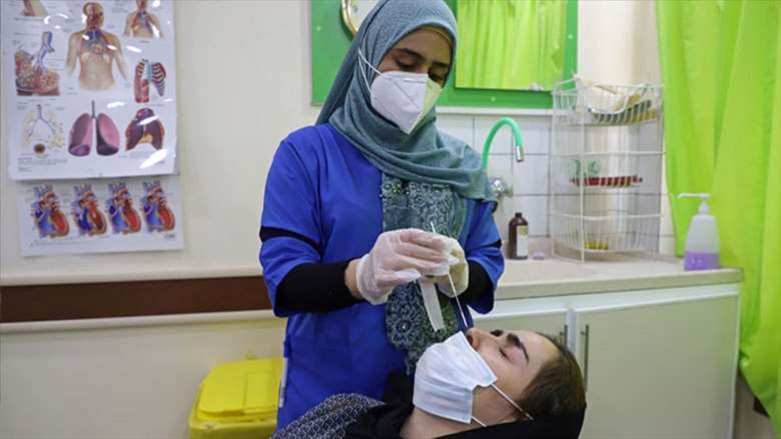COVID19: Kurdistan Region reports over 800 cases for second day, down from previous days

ERBIL (Kurdistan 24) – The Kurdistan Region’s health authorities reported over 800 cases on Sunday, down from last week’s daily tolls when the daily average was over 1,000 and set new records.
The ministry’s daily statement said health workers had conducted 6,040 tests during the past 24 hours, raising the total of such tests to 607,003 since the outbreak began in the Kurdistan Region in early March.
Out of the tests conducted in the past 24 hours, the region recorded 828 infections. According to figures released by the Kurdistan Regional Government (KRG), the total number of infections have reached 68,872 cases.
The ministry also recorded 25 deaths in the past 24 hours, raising the total death count to 2,088 fatalities.
Related Article: Kurdistan Region records highest daily COVID-19 infections: over 1000 cases
Health officials say that over 40,000 have recovered from the highly contagious disease, but it is important to note that the classification of “recovery” indicates that a patient is no longer being actively treated by health professionals, not that they have fully recovered.
Increasingly, medical experts recognize that COVID-19 symptoms, some of them serious, often continue long after an individual’s formal recovery and that various other symptoms such as significant lung damage could be permanent.
Border crossings reopen with Turkey and Iran
On Saturday, the regional Interior Ministry ordered the reopening of Kurdistan Region’s border crossings with Turkey—Ibrahim Khalil—, and Iran, including Haji Omran, Bashmakh, and Parwezkhan. All entrants must test for the virus before entry, the ministry noted.
A statement explained that “a test is conducted at the border crossings for people coming to the region.” Border authorities would permit entry should they test negative and otherwise deny access to all except Iraqi nationals.
“As for foreign people who come to the region, they need an entry visa; they are not allowed to enter the region unless they have the electronic visa of the regional government or the government of Iraq.”
The ministry also extended a ban on gatherings, funerals, weddings, noting that the authorities would fine offenders two million Iraqi dinars.
The statement indicated that private sector establishments, their employees, and workers must adhere to wearing masks and apply preventive measures, warning violators of a fine of 150,000 IQD for each case.
The Interior Ministry also demanded the region’s residents adhere to preventive measures, especially wearing masks and adhering to social distancing of at least 1.5 meters in public.
Editing by Khrush Najari
